Last-Minute NYC Holiday Gift Guide 🎁
We’ve created a holiday gift guide with presents for the intrepid New Yorker that should arrive just in time—


Grand Central Terminal is celebrating two landmark events in its history this year: the 20th anniversary of its restoration and the 40th anniversary of the Supreme Court decision that saved the Terminal (and significantly altered preservation policy in New York City). The celebrations started yesterday, with the launch of Taste of the Terminal (going on through tomorrow) with free food and product samples, a photo installation celebrating the 40th anniversary, and live music in Vanderbilt Hall. In July and August on Tuesday at lunchtime, musical acts will showcase “throwback sounds of the 1990s” in the “Dining Concourse in Concert” lunchtime music series. This September, an exhibition by the Municipal Art Society in partnership with the New York Transit Museum will tell the story of the advocacy campaign to save Grand Central as well as show before-and-after photographs of the 1998 restoration.
Today, we are showing you photographs from the New York Transit Museum Archive that show the Terminal before and during the restoration!
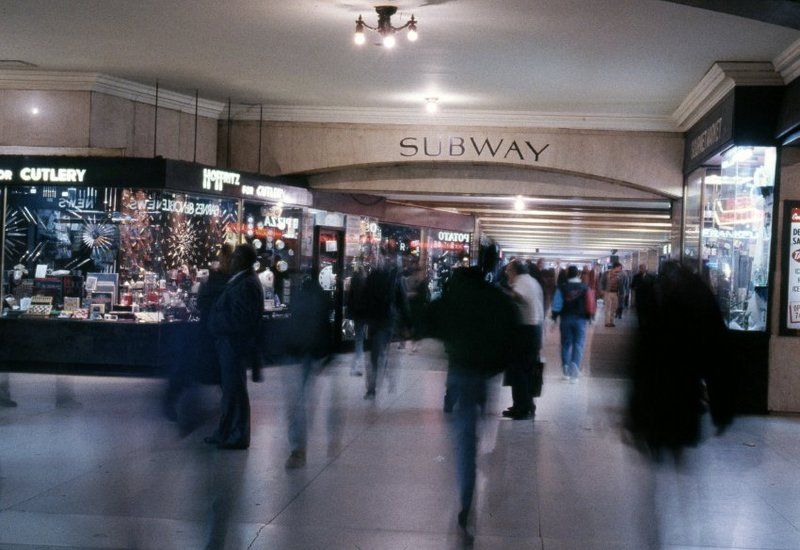
Lexington Avenue Passage. Photo credit: New York Transit Museum.
It’s hard to imagine today that in the 1970s, Grand Central Terminal was falling into major disrepair and threatened by the construction of a 53-story skyscraper above it. But following the destruction of Penn Station, city preservations were prepared for action and received a celebrity endorser: Jacqueline Kennedy Onassis, who was serving as a board member of the Municipal Arts Society, the non-profit organization that was spearheading preservation efforts through the Committee to Save Grand Central.
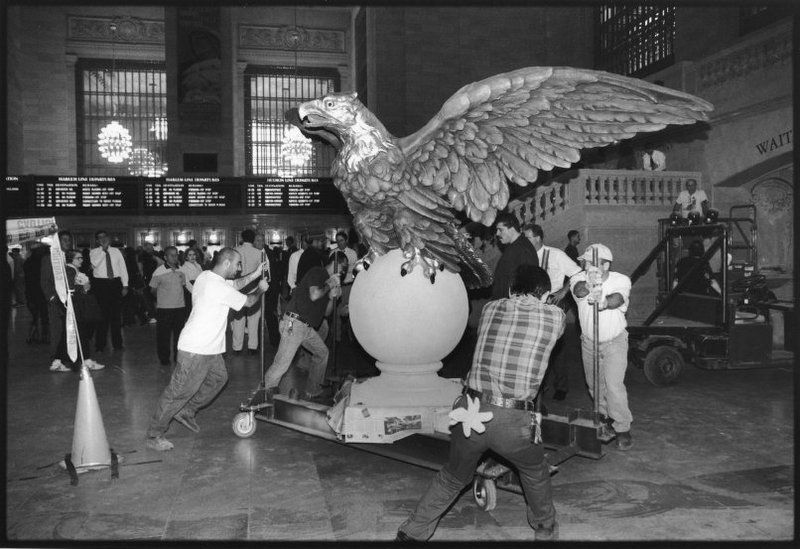 One of the Grand Central eagles during restoration. Photo credit: New York Transit Museum.
One of the Grand Central eagles during restoration. Photo credit: New York Transit Museum.
The landmark Supreme Court ruling Penn Central Transportation Co. v. New York City, decided on June 26, 1978 that the application of the New York City landmarks preservation law to block a proposal to build a skyscraper atop Grand Central did not constitute a “taking” of Penn Central, which had argued that the landmarks designation had “‘taken’ their property without just compensation in violation of the Fifth and Fourteenth Amendments, and arbitrarily deprived them of their property without due process of law in violation of the Fourteenth Amendment.” The Supreme Court deemed that Penn Central could still earn a “reasonable return on investment” without building the skyscraper, that the fundamental use of the terminal could continue unchanged despite a landmarks designation, and that air rights that were transferred to sites in the vicinity of the terminal significantly compensated for the loss of air rights above.
In essence, the court case effectively reaffirmed Grand Central Terminal’s landmark designation from 1967 and blocked the construction of a high rise building the New York City landmarks preservation had deemed “destructive of the Terminal’s historic and aesthetic features.”
The decision also opened up discussions on funding to restore and improve Grand Central Terminal.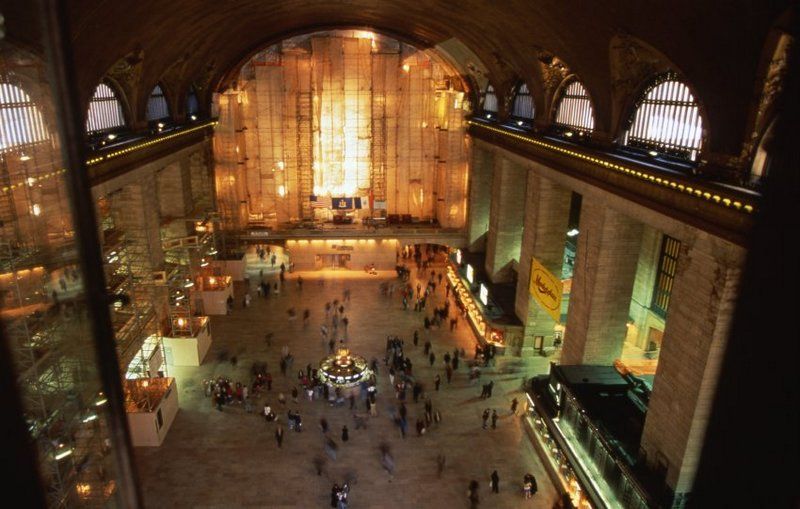
Grand Central Terminal’s main concourse during restoration. Photo credit: New York Transit Museum
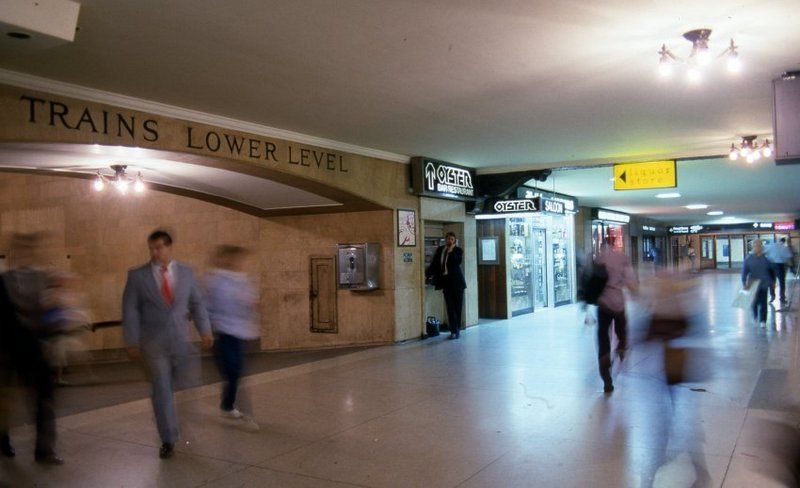
Shuttle Passage. Photo credit: New York Transit Museum
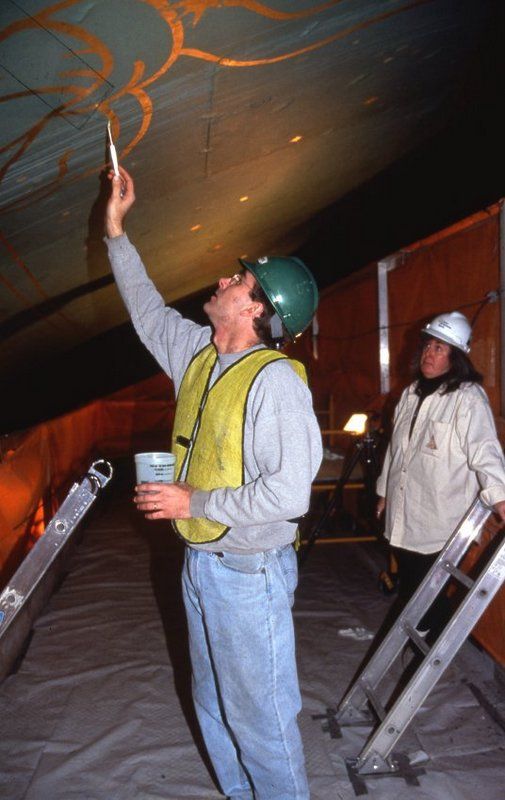
Grand Central Terminal’s main concourse ceiling under restoration. Photo credit: New York Transit Museum

Grand Central Terminal’s clock under restoration. Photo credit: New York Transit Museum
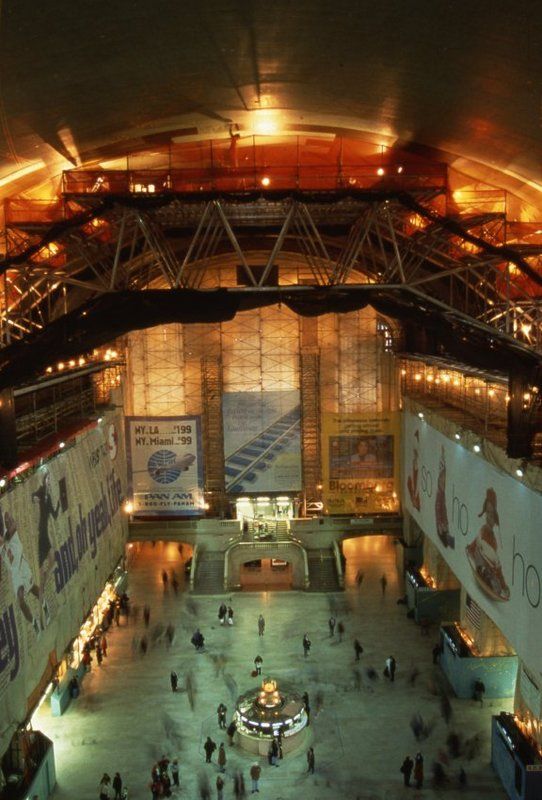
Grand Central’s main atrium under restoration. Photo credit: New York Transit Museum
Join in on the festivities going on inside Grand Central Terminal all summer amd look out for the exhibition this fall!
Join us for an upcoming Untapped Cities tour of the Secrets of Grand Central Terminal. Next, check out the Top 10 Secrets of Grand Central Terminal.
Subscribe to our newsletter